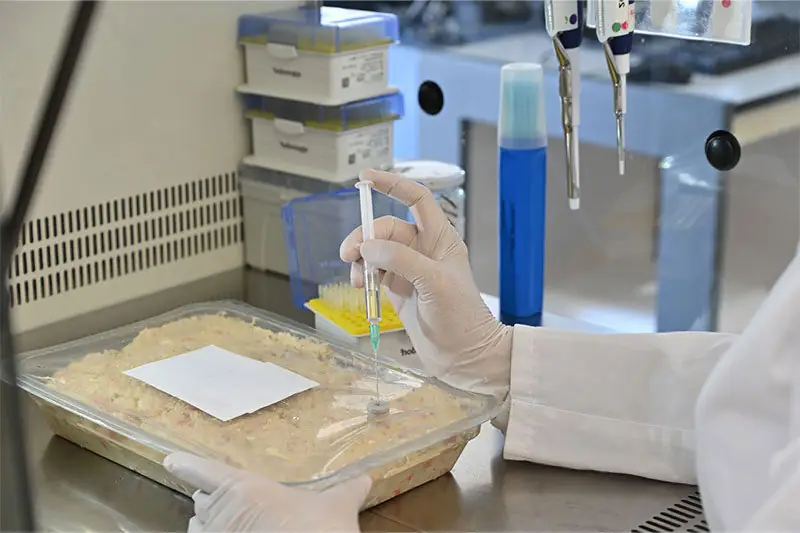Clostridium Species Detection in Cosmetic Products
Microbiological safety testing of cosmetics is crucial to ensure that products are free from harmful microorganisms. Clostridium species, including Clostridium botulinum, can produce hazardous toxins and cause severe health issues if present in cosmetic formulations. This service focuses on detecting these potentially dangerous bacteria using advanced microbiological methods.
The detection of Clostridium species is particularly critical for products that are exposed to the skin, as they may come into direct contact with sensitive areas. The presence of these organisms can lead to infections or dermatitis if not properly controlled during formulation and production processes. By offering this service, we aim to provide our clients with peace of mind by ensuring their cosmetic products meet stringent safety standards.
Our microbiological testing laboratory follows strict protocols based on international standards like ISO 17254:2013 for the detection of Clostridium botulinum in cosmetics. This includes detailed sample preparation procedures, culture conditions that favor the growth of target bacteria over other potential contaminants, and precise identification methods using biochemical tests and PCR.
The process starts with receiving samples from clients who have already prepared them according to our guidelines. These preparations ensure optimal conditions for detecting Clostridium species without interfering with test results. Once received, our team conducts thorough analyses following validated methodologies that comply with current regulatory requirements.
After completing the analysis, we provide detailed reports summarizing findings and recommendations based on those results. Compliance officers will appreciate knowing whether their products meet regulations such as FDA Good Manufacturing Practice (GMP) guidelines or EU Cosmetics Directive 1272/2005/EC regarding microbial limits.
In summary, our Clostridium species detection service ensures that cosmetic products comply with strict safety standards protecting consumers from potential hazards. By leveraging our expertise in microbiological testing and adherence to international best practices, we help maintain high-quality standards throughout the supply chain.
Frequently Asked Questions
Industry Applications
| Application | Description |
|---|---|
| Cosmetic Formulation Development | To ensure the absence of Clostridium species during early stages of product development. |
| Quality Control Monitoring | Regular checks to maintain compliance with regulatory requirements and protect consumer health. |
- Formulation adjustments may be necessary if Clostridium species are detected at any stage.
- Continuous monitoring helps identify issues early, preventing costly recalls later in the product lifecycle.
Eurolab Advantages
Our laboratory offers several advantages when it comes to detecting Clostridium species:
- Accreditation: We are ISO 17025 accredited, ensuring our methods and results meet international standards.
- Expertise: Our team consists of highly trained microbiologists specializing in cosmetic microbiology.
- Technology: Utilization of state-of-the-art equipment for accurate detection and identification.
These factors contribute to reliable, consistent results that can be trusted by industry professionals.
Environmental and Sustainability Contributions
Incorporating advanced microbiological testing into the cosmetics industry not only benefits human health but also contributes positively to environmental sustainability:
- Eco-friendly: By ensuring products are free from harmful Clostridium species, we reduce unnecessary waste associated with contaminated products.
- Resource Efficiency: Early detection allows for corrective actions before large-scale manufacturing processes begin, conserving resources used in formulation adjustments or rejections.
The commitment to environmental responsibility extends beyond just the testing process; it encompasses all aspects of product development and production within our clients' organizations.





